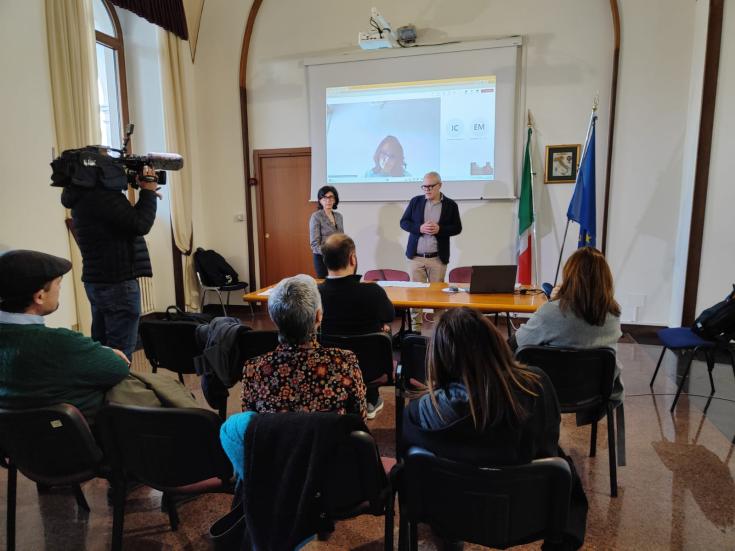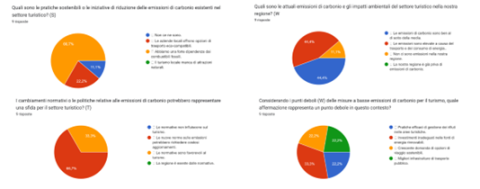Second Stakeholders' Meeting – Municipality of Campobasso
The tourism sector is particularly influenced by the effects of climate change – especially in a region like Molise, which offers rich natural landscapes as its main points of attraction. Meanwhile, European policies such as the EU Green Deal indicate ambitious decarbonisation objectives to be achieved by 2050, while simultaneously encouraging the strengthening of planning tools useful for supporting sustainable development of infrastructure and territory. For this reason, the Municipality of Campobasso, with the aim of planning actions aimed at reducing climate-altering gas emissions in the tourism sector, has become a partner of the "DETOCS - DEcarbonising the Tourism industry post Covid-19 Support" project.
In order to engage regional stakeholders, a meeting was held on 27 February 2024 in Campobasso. At the meeting, the first phase of the SWOT analysis conducted within the DETOCS project was presented. Present at the stakeholder meeting were representatives of the local tourism sector, who were called upon by the municipality to act as spokespeople green tourism in the region.
The SWOT analysis conducted has led to the following results:
Strengths:
- Heritage and natural beauty: The Molise region has rich natural landscapes and a historical heritage that make it an attractive destination for ecological and cultural tourism.
- Potential for Renewable Energy: The region has potential for renewable energy sources that can support energy self-sufficiency initiatives.
- Supportive government initiatives: Government incentives and policies that promote sustainable tourism can provide an enabling environment for decarbonisation efforts.
Weaknesses:
- Infrastructure challenges: Outdated and inefficient tourism infrastructure can hinder the adoption of energy-efficient technologies and practices.
- Limited awareness: Limited awareness of Molise as a tourist destination can hinder efforts to promote new and innovative types of tourism.
- Seasonal Demand: Seasonal fluctuations in tourism demand can make it difficult to maintain consistent energy efficiency initiatives throughout the year.
Opportunities:
- Decarbonisation initiatives: The focus on decarbonization and increasing energy efficiency offers opportunities for investment in environmentally friendly technologies and practices.
- Diversification of tourism offerings: Promoting virtual tourism and other low-energy options can attract a wider range of visitors.
- Research and development: Investments in research and development of sustainable tourism practices can lead to innovative solutions for energy efficiency
Threats:
- Economic viability: High energy costs can threaten the economic sustainability of the tourism sector, especially for small businesses, making it important to find sustainable solutions.
- Competitive destinations: Nearby tourist destinations could outcompete Molise if they offer similar eco-friendly options, posing a competitive threat.
- Climate change: Climate change could affect the natural beauty and ecosystem of Molise, potentially impacting its attractiveness as a tourist destination.
To address these challenges and leverage opportunities, Molise can consider strategies such as:
- Retrofitting and upgrading existing infrastructure to improve energy efficiency and reduce carbon emissions.
- Promoting Molise as an eco-friendly and sustainable tourist destination, showcasing its renewable energy initiatives and low-carbon footprint.
- Offering incentives and support to local businesses to invest in energy-efficient technologies.
- Investing in marketing campaigns to raise awareness about Molise as a tourist destination, emphasizing its unique and low-impact tourism options.
- Collaborating with research institutions and industry experts to develop and implement sustainable tourism practices and technologies.


